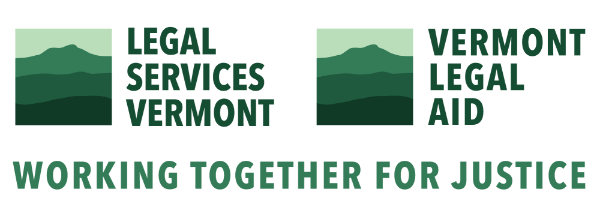This page will point you to resources to learn about your rights as a consumer. It also tells you how to file a consumer complaint and report fraud or scams.
Basic consumer rights information
- COVID-19 Consumer Resource Center website (consumer.law)
- Consumer.gov
- Consumer Assistance Program - Vermont Attorney General
- File Your Consumer Complaint - Vermont Attorney General
- Consumer Information - Federal Trade Commission
- Consumer Law Information - Vermont Attorney General
- Consumer Education Information - National Consumer Law Center
Privacy and safety
- Identity Theft - On our website, includes sample letters and information
- Data Breaches - On our website, includes list of recent breaches
- Internet Safety and Privacy - Privacy Rights Clearinghouse
- Financial Privacy - Privacy Rights Clearinghouse
Debt collection
- Debt and Debt Collection - On our website, includes sample letters and information
- You Can Protect Your Property and Income - On our website
- Student Loans - On our website
Car purchasing
- Tips for Consumers in Vehicle Sales, Service and Financing - Consumer Assistance Program
Junk mail, telemarketing and sweepstakes
- Do Not Call Registry
- Information About Getting Your Name Off Mailing Lists
- Get Your Name Off Telemarketing Lists
- Information About Getting Your Name Off Email Lists
- Sweepstakes: What to Know Before You Enter
- Sweepstakes: You Don't Have To Buy Anything
File a complaint or report
1. File a complaint with the Vermont Attorney General’s Consumer Assistance Program (CAP).
Get help with consumer problems and report scams to CAP.
2. Report fraud, scams and bad business practices with the Federal Trade Commission (FTC).
The FTC Report Fraud website takes complaints and conducts investigations to stop unfair, tricky and illegal business practices. The FTC cannot resolve individual consumer complaints, but they give some tips that may help you get your money back. Submitting a report will generate tailored steps you can take to try to recover your money or help you with other impacts from the problem you experienced. The FTC uses complaints to build cases against scammers. Any information you can give helps investigators. The FTC accepts reports related to many topics, including:
- Impersonators like fake government or business callers
- Sweepstakes or prizes
- Credit and debt scams
- Internet and TV services
- Online shopping
- Unwanted phone calls
- Jobs, investments, money-making opportunities
- Car/truck sales and repairs
- and more!
Visit consumer.ftc.gov to find consumer tips and learn how to avoid scams.
3. File a complaint with the Consumer Financial Protection Bureau (CFPB).
The Consumer Financial Protection Bureau supervises banks, credit unions, and other financial companies and enforces federal consumer financial laws. Contact the CFPF with problems about:
Loans
Financial Services
- Bank accounts or services
- Credit cards
- Prepaid cards
- Credit reports and scores
- Debt collection
- Money transfers
4. File a complaint about an insurance company with Vermont Department of Financial Regulation (DFR).
The DRF takes complaints about insurance companies. This includes:
- auto
- homeowners
- life
- annuity
- major medical
- dental
- long-term care
- Medicare supplement
- or other types of insurance coverage.

